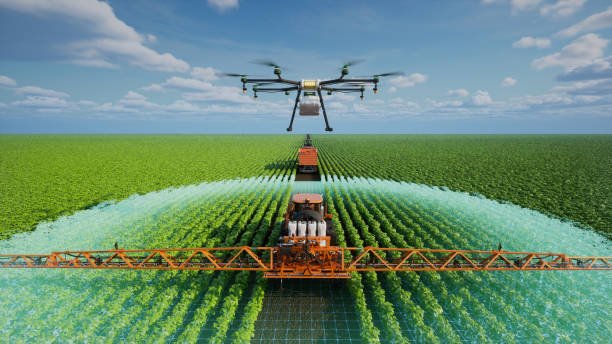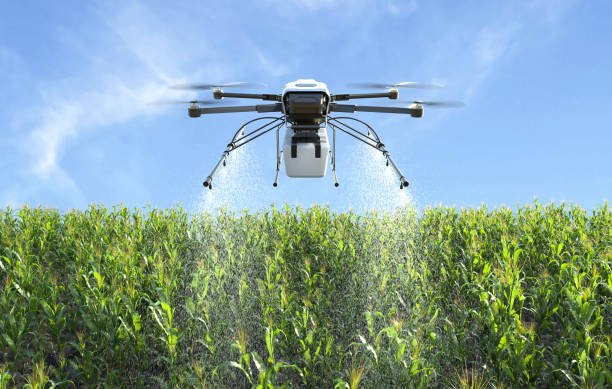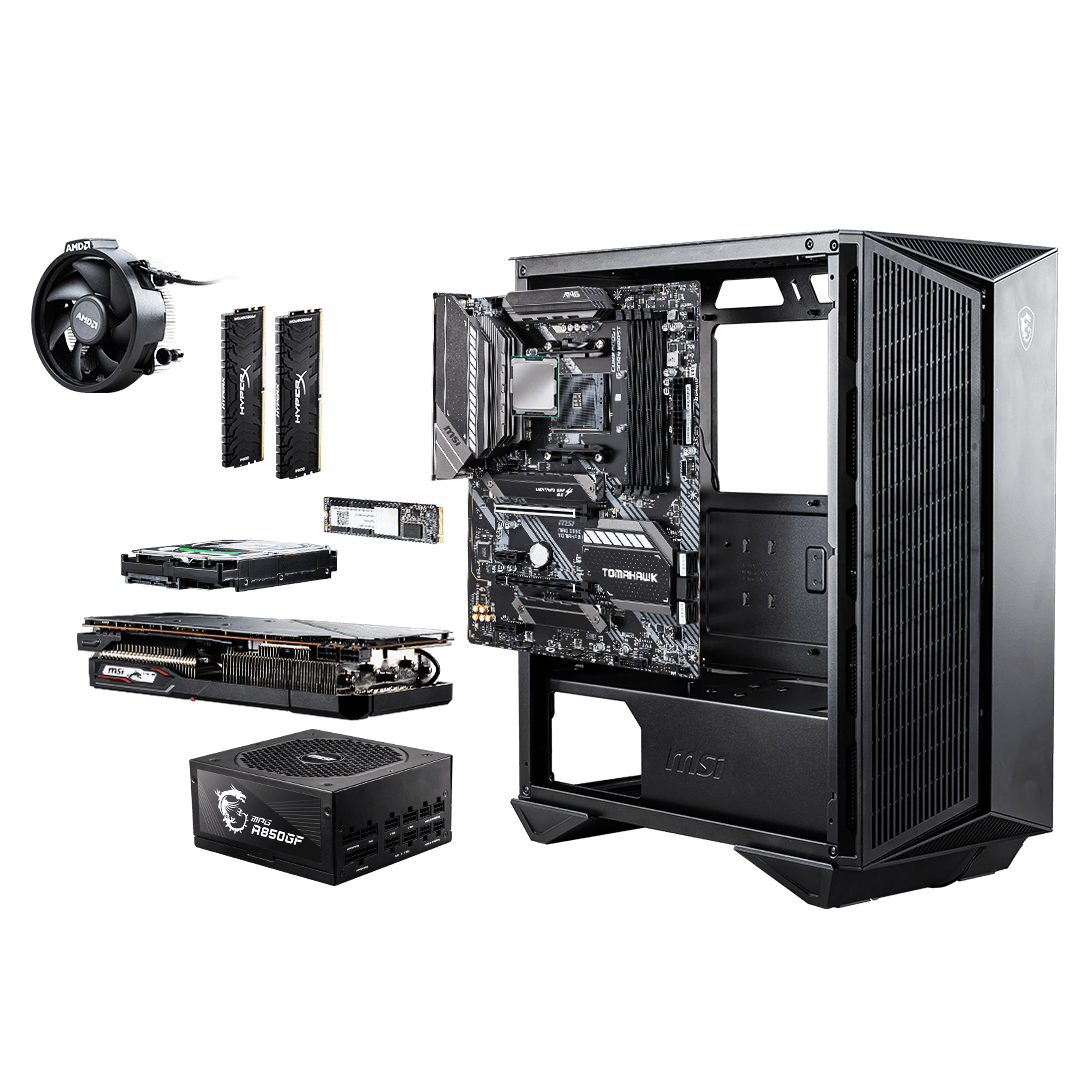Introduction Drones Farming Revolution
Farming methods have changed a lot because of the course of history. Now new methods and innovations are being used. As we look at how drones are changing agriculture to be more efficient and sustainable. Drones are turning into a more and more helpful instrument for modern farmers.
They provide a view from above of the farm, which is very good for monitoring the health of plants, the condition of the soil, and how resources are distributed. Precision farming is a way of managing agriculture that focuses on using different tools like GPS navigation, control systems, sensors, robots, drones, self-driving machines, and technologies for adjusting the amounts applied to crops based on location data from soil tests done with GPS help. Also included are automated equipment and programs for computers. It’s very important to how we farm today.

Watching over crops and studying them is an important task for drones in farming. Drones with high-tech sensors and cameras can make maps and look at big pieces of land, providing information on the health of the plants, the condition of the soil, and other different details.
Farmers can utilize this data to choose better how to rotate their crops, when and how much to water them, and the ways of planting. With accurate identification of trouble spots, farmers can handle issues such as lack of fertilizers, not enough water or pest attacks in a more effective and cost-saving manner.

Moreover, drones are very important to make better the way we use fertilizer and chemicals for plants. The old ways of spraying crops often do not work well and use too much. Sprayer-equipped drones may target certain regions, decreasing chemical usage and environmental effects.
Additionally, the information that drones gather is more than just basic visual checking. They have high-tech sensors and cameras that can check the health of crops, find sicknesses, and also make predictions about how much crop will grow by looking at the color and state of leaves and ground. The data helps the farmers to use exact treatments, like specific pesticide and fertilizer uses. This not only makes crops healthier but also lessens harm to the environment by cutting down on excess flow and waste.

Drones are also changing how irrigation is managed. They have advanced thermal imaging cameras that can detect differences in the temperature of fields, showing when it’s time to water the crops. Farmers are now able to use water more effectively with the help of this technology, which is significant in places where there is not much water.
Drones are greatly changing sustainable farming practices. They help to decrease the carbon footprint of farm activities by allowing for more precise and informed agricultural decisions based on data. Drones offer accurate methods for farming that help to make the best use of resources, reduce waste and lessen their impact on the environment.
Using drones in farming comes with challenges. The big problem is the cost of this technology, which might be too expensive for small farmers to buy. Operating drones also involves a process of learning. Additionally, one needs to be careful about the regulatory challenges related to flying drones over farms.
Additionally, the merging of drone technology with artificial intelligence is making these systems more powerful. AI programs can handle and analyze the big data that drones gather to spot trends and irregularities that humans might overlook. This depth of examination can improve foresight, enabling those who farm to foresee issues before they worsen and to enhance the methods they use for managing crops.

Drone technology in agriculture has a lot of promise, and as it gets better, there are more ways to use it. The way drones can change farming is exciting because they could help sustainably produce food and deal with the increasing need for food around the world more effectively.
Drones in farming seem to promise a good future. More improvements like batteries that last longer, improved sensors and better data analysis will make drones even more effective. Drones will be an important part of modern farming methods as they are more common and simpler to use.
To end, drones are changing how we do farming by giving new solutions to old problems. They give us a lot of information from the sky. Drones are transforming how farming is done in the twenty-first century because they allow for precise agriculture methods and provide detailed views from above, which helps to boost farm output and sustainability.



